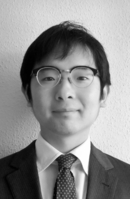Contact
The Faculty of International Studies
3-4-1 Asaminami-ku, Room 731
731-3194 Hiroshima
Japan
Profile
Dr. Shohei Saito is "Postdoctoral Fellow for Research Abroad" at the Ludwig-Maximilians-Universität München. Funded by "The Japan Society for the Promotion of Science" he has been working as guest researcher at LMU's Chair for Russian/Asian Studies of Prof. Dr. Andreas Renner and has also been in close academic exchange with the members of the Graduate School for East and Southeast European Studies as well as with LMU's Japan Center. His current research project is entitled "Eurasianism Reappraised: The Impact Outside Eurasian Borders".
Research Project
Eurasianism has received a fair amount of scholarly attention recently, but mostly from an Atlantic perspective, mainly focusing on its political implications as an ideology of continental expansionism. At the same time, as the centenary of World War I approaches, an interest in Eurasianism’s roots, the same despair of European civilization that motivated Spengler, has sprung up. Most of these studies have highlighted the ineffectiveness of the Eurasian message, what one would expect from an ideology of despair. The “death” of the Eurasian intellectual movement is often made coterminous with the death of its most gifted member, the linguist Nikolai Sergeevich Trubetzkoy (1890-1938), who died prematurely shortly after the 1938 German Anschluss with Austria led to his interrogation by the Gestapo. Like its main proponent, Eurasianism has been dismissed as short-lived and lacking political impact.
Such emphasis on all that Eurasianism is not and does not has, in fact, obscured the true and lasting importance of the Eurasian project. The long-term scholarly contributions of the Eurasianists in a range of fields from linguistics to psychology to geography to history. George Vernadsky at Yale from 1927 and Roman Jakobson at Harvard from 1949 are but two of the biggest names who drew lasting inspiration from the Eurasian movement. It is Jakobson who wrote highest praise in Trubetzkoy’s obituary (in German) and also oversaw the posthumous publication of his works. Eurasian threads of thought also run through contemporary anthropology, cultural studies and philosophy, as well. The largely forgotten Eurasians remain central to the intellectual and academic trends of our times.
The generally accepted view that the Eurasians were politically un-influential in their own time is also flawed. Rejected and then repressed by both Communism and Fascism, the Eurasians, of course, had little room for maneuver in Europe. It was only further east, in Japanese translation, that Eurasian ideas became central to the evolution of Pan-Asian multiethnic concepts of empire within the Greater Asian Co-prosperity Sphere. Key Eurasian texts were first translated by SHIMANO Saburo of the South Manchurian Railway (SMR) Research Bureau, at that time the largest research organization in the world. Shimano had also been a member of a key Pan-Asian organization, the Yuzonsha, since 1919, collected Eurasian works in Berlin and translated selectively and tendentiously to emphasize the possibility of constructing an organic Pan-Asian entity out of the multiple ethnicities within the Japanese empire. Even as Eurasianism was being driven out of Europe, it became a ruling ideology in Manchukuo. My research will discuss Eurasianism from Asian perspectives, following in Benjamin Schwartz’s tradition to identify both cultural assumptions and distorting translations.
Fellowship
- The Japan Society for the Promotion of Science Postdoc-Stipendiary Fellowship at the LMU Munich, April 2015 − March 2017


